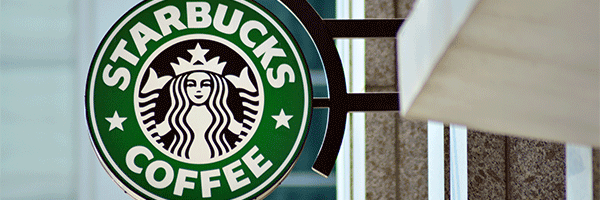Today, June 10, Starbucks (SBUX) CEO Kevin Johnson wrote in an open letter to customers and investors that the company expects to lose more than $3 billion in revenue in its fiscal third quarter, which ends on June 28, due to the coronavirus pandemic. (The company reports earnings on July 28.)
In a separate regulatory filing today the company said operating income would fall by $2 billion to $2.2 billion in the quarter. For the quarter, Starbucks now anticipate a loss of 55 cents to 70 cents a share at $79.01. According to FactSet, Wall Street analysts had been projecting a loss of 16 cents a share for the quarter. In the fourth quarter Starbucks said it was expecting earrings of 15 cents to 40 cents a share–a much wider than usual spread. Wall Street had been looking for 38 cents a share. Starbucks shares finished down $4.08 today
The company said it believes “the most difficult period is now behind us,” Johnson wrote. About 95% of its 8,000 U.S. company-run stores are now open. Starbucks said U.S. same-store sales, or sales at locations open at least a year, improved for six consecutive weeks through the end of May. They were down 32% year over year in the last week in May, compared to a 65% decline at the pandemic’s height in mid-April. The company says it expects a 10% to 20% decline in U.S. same-store sales for its full fiscal year, which ends September 27.
Shifts in Starbucks business model have implications for the re-opening economy beyond the company itself. Starbucks will close 400 existing stores and expedite the rollout of its new “Pickup” store concept with a focus on mobile ordering. It will also expand access to curbside pickup, drive-thru and walk-up counters in less dense, suburban markets. The plan calls for shutting more of Starbuck’s cafe-like locations with space to sit with friends or work on a personal computer in favor of stores that emphasize convenience orders. Before the pandemic Starbucks had been testing the Pickup store concept at two stores–one at Penn Plaza in Manhattan and another in Toronto’s Commerce Court.
To me what’s most interesting about Starbucks shift in positioning is that it’s a permanent response to a post-corona pandemic world.
If you own Starbucks–or are short the stock as I am with Put Options in the Volatility Portfolio–the question is whether a Starbucks that sells coffee and not a workplace or social experience–will generate sales like the old Starbucks.
If you’re trying to figure out the post-coronavirus world, Starbucks’ moves raise a question about what companies will have the flexibility and the management skills to adapt.


